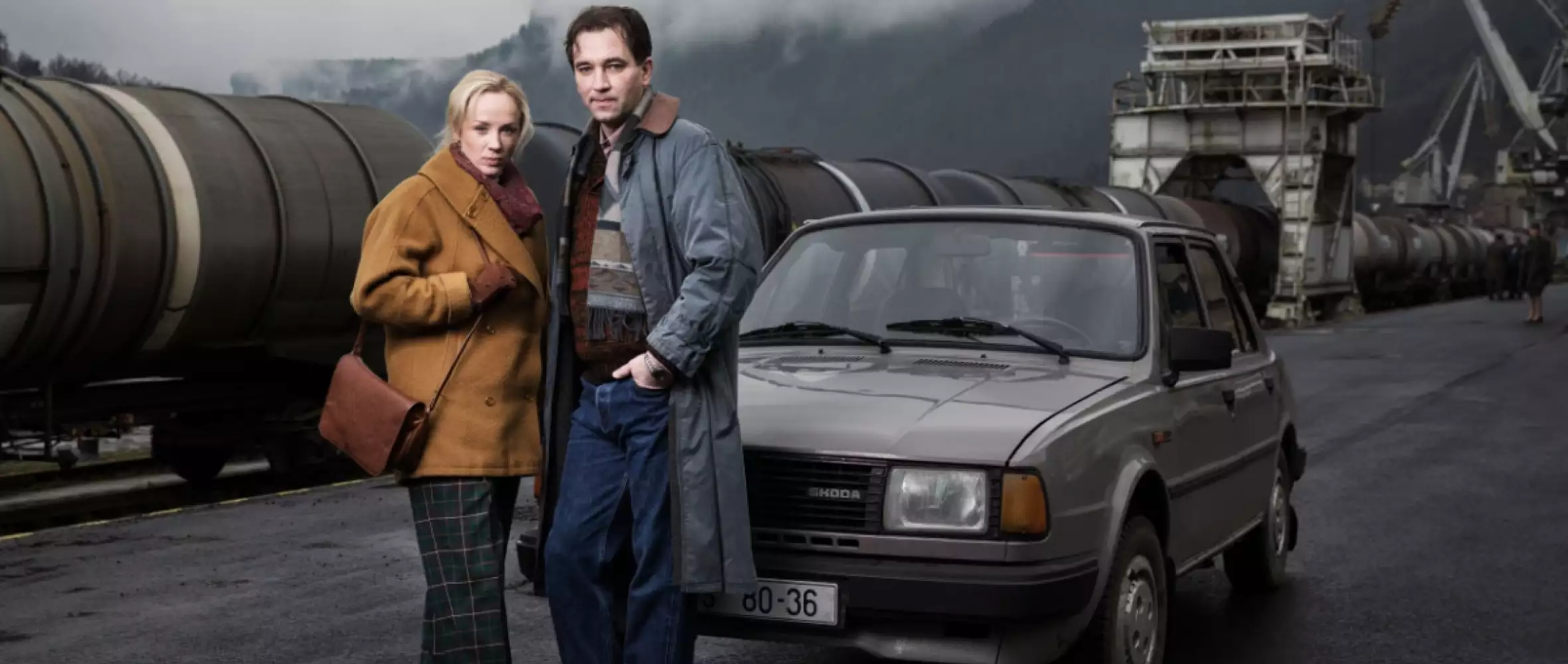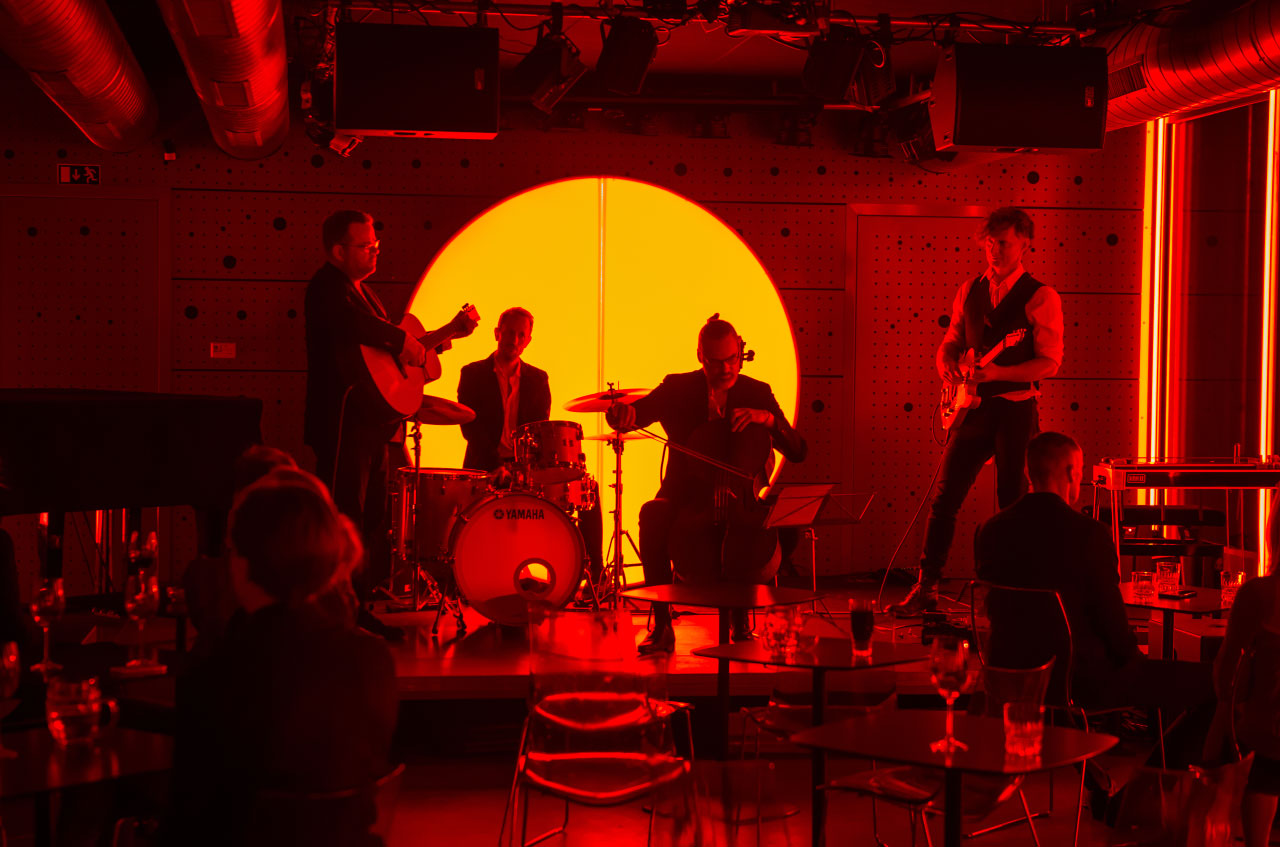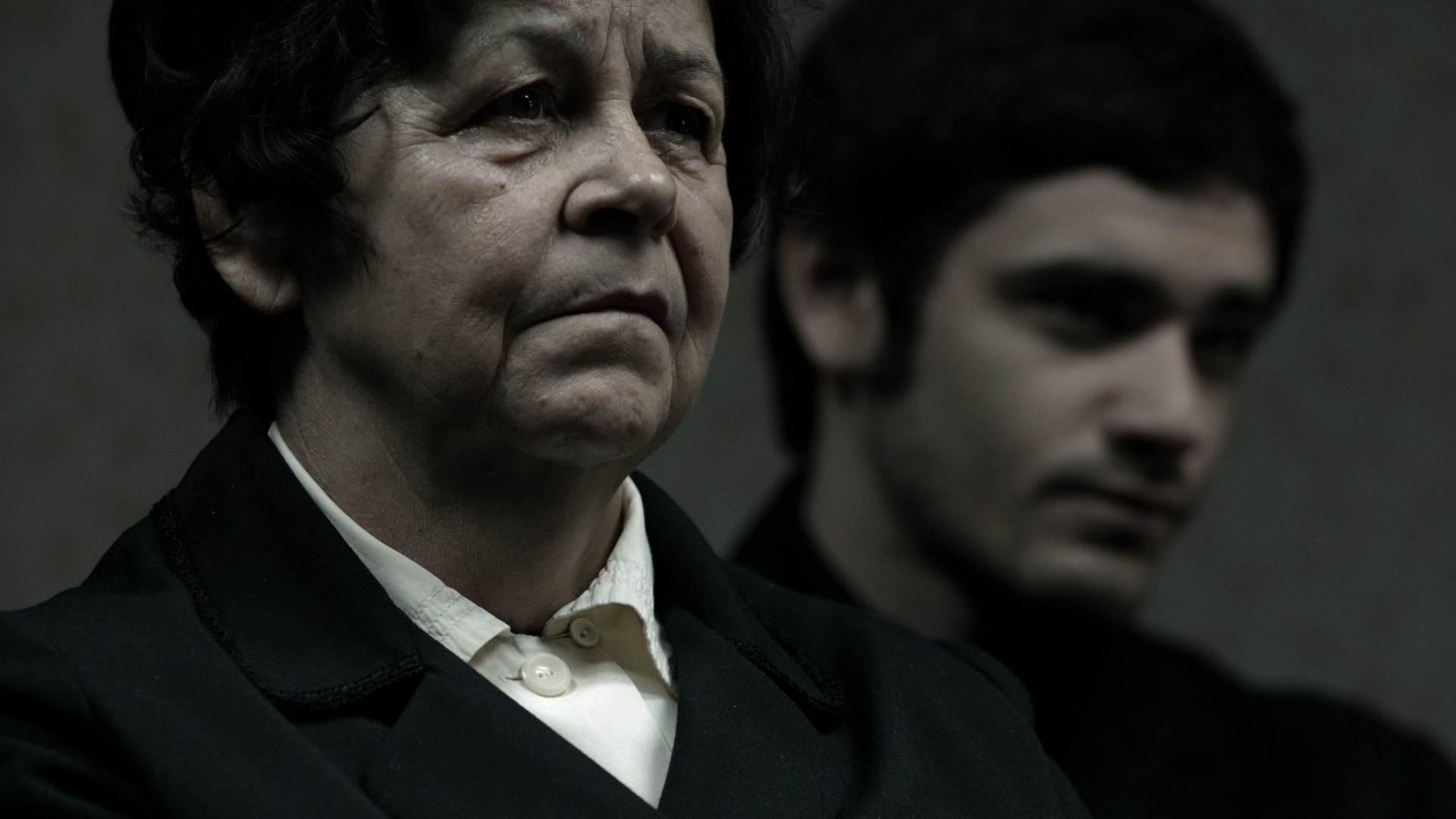
06 April 2021
Double Take: Czech filmmakers take on small screen and episodic projects
Part II
Double Take: Czech filmmakers take on small screen and episodic projects
Part II

The proliferation of quality TV shows and the streaming wars have created a previously unknown parity between the silver screen and small screens worlwide. Established filmmakers have been drawn to television and episodic projects enabling them to push boundaries, subvert expectations, and re-invent tired conventions. While the gap has diminished linearly, content has exploded exponentially. Big screen, small screen, mobile screens - talent started to rapidly switch from medium to medium.
Article by Martin Kudláč for CZECH FILM magazine / Spring 2021
Following the previous article on comedy, we now focus on crime.
Murders they shot
Comedy remains a staple for filmmakers working on the small screen; however, crime in all its manifold variety maintains its position as the most common and widely popular TV genre. One of the most prolific directors in this area of Czech TV happens to be Slovak-born: he is Peter Bebjak, an actor by vocation and a producer and director by profession, and an effortless multitasker irrespective of screen size.
While in film Bebjak proves his versatility by easily switching genres, the latest being a period drama The Auschwitz Report (2020), based on the true story of Rudolf Vrba and Alfred Wetzler, two Slovak Jews who escaped from Auschwitz, in TV projects he focuses mainly on a single genre. Mordparta (The Killer Gang, 2016-2017), Specialists (2017-2020), and the period series The Luhačovice Cops (Četníci z Luhačovic, 2017) are standard TV crime fare, yet Cases of the First Department (2014-2016) stands head and shoulders above them.
The TV procedural that Bebjak co-directed with Dan Wlodarczyk (who already has two features under his belt: Indian and the Nurse (2006) and Green Horse Rustlers (2016) is conceptually close to true crime fare, as the crimes are based on, or inspired by, actual domestic acts of law-breaking, some based on the most infamous cases in the modern history of the Czech Republic. Cases of the First Department has been voted the best crime series of the decade in an online poll by domestic viewers.
Bebjak followed the series with the psychological crime miniseries Justice (2017), co-written and produced by the director himself for Czech Television, which has been bought by the US firm Pearl Street Films owned by actors Matt Damon and Ben Affleck. The director seems to have suffered from some crime fatigue as his most recent television projects are well off the beaten track.
He has, for instance, since directed a period drama miniseries, The Actor (2020), which follows a promising young thespian who strikes a Faustian bargain with the Secret Police in 1950s Czechoslovakia. Nor did he shy away when he was asked to direct the post-apocalyptic web series The Spot (2019), in which a mysterious illness ravages the adult population, leaving children to fend for themselves in a dystopian alternative reality.
A completely different approach to the domestic crime genre is represented by the work of producer and director Viktor Tauš. While Bebjak is a prolific craftsman, Tauš is an innovator. Tauš debuted with the autobiographical drama Canary (1999), followed by Thawing Out (2008), the sequel to the 1982 comedy Snowdrops and Aces, and the dramedy Clownwise (2013). After that and alongside his stints as a producer, he embarked on a parallel career on the small screen with the procedural miniseries Blue Shadows (2016) and Monsters of the Shore (2019).

The series is part of a larger television crime cycle called Detectives of the Holy Trinity, whose two previous instalments, Case for an Exorcist (2015) and Five Dead Dogs (2016), were tackled by another well-known and seasoned domestic filmmaker, Jan Hřebejk, and adapted for the screen by his long-time writing partner Petr Jarchovský.
The Hřebejk-Jarchovský duo has a firm foothold in domestic cinema with such classics as Cosy Dens (1999), Divided We Fall (2000), and Pupendo (2013), which have also often been popular overseas, like their recent runaway success The Teacher (2016), sold to over 50 territories (Tauš also co-produced the duo´s cinematic trilogy Garden Store). Hřebejk is having a successful run on the small screen with the crime miniseries Rédl (2018) which gravitates more towards the hard-boiled tradition while imbuing it with local perceptions of quality TV. Rédl acquired a dedicated following when it was hailed as the best domestic TV series of 2018.
Nevertheless, it was Viktor Tauš who fully embraced high-quality TV with Blue Shadows and Monsters of the Shore which brought a more cinematic language to television shows. Tauš considers the crime series as a platform “to communicate important things to the broadest possible group of viewers.” Blue Shadows addresses man’s relation to nature, while Monsters of the Shore tackles the theme of uprootedness.

Tauš continued his command of the genre by introducing a more profound and timely message in Rats (2020), a crime miniseries about the illegal drug business that frames a conflict between society as traditionally understood and as “a culture of start-ups”. Besides directing and producing for television, and continuing to direct features, Tauš has also produced the feature debut by the emerging talent Beata Parkanová, Moments (2018), as well as the first feature-length offering from Slávek Horák, Home Care (2015).
He is currently working on a large-scale multimedia project that was supposed to be his next feature film, ´Merican Chick. While the film is yet to be produced, the story, inspired by a woman, Tauš met when he was living as a homeless person, has already been adapted for the stage and will be published as a book, as well as being turned into a television miniseries in addition to the big screen treatment most likely to be released in 2021. Furthermore, he will also be turning Beata Parkanová´s semi-autobiographical script A Scream as a Beautiful Song (2020) into a feature.
Tauš managed to elevate the domestic production to top quality TV standard, a privilege that was previously the sole prerogative of the premium channel HBO through its local arm, HBO Europe. For example, HBO was behind Burning Bush (2013), an acclaimed series about the real-life case of Jan Palach’s self-immolation, produced by veteran director Agnieszka Holland for the young and ambitious outfit nutprodukce.

Burning Bush drew such acclaim that at one point it was even considered for nomination as the Czech Oscar, as the series has been re-cut to fit the feature film format. HBO Europe teamed up with nutprodukce again for another dark crime venture series, Wasteland (2016). The directing duties were shared by filmmakers Alice Nellis and Ivan Zachariáš. Nellis already had a number of feature films to her name and is currently working on The Expulsion of Gerta Schnirch, a demanding film adaptation of the novel by Kateřina Tučková, which tackles the issue of the collective guilt of Czechs and Germans and responsibility for historical bloodshed.
Meanwhile, Zachariáš had carved out a successful career directing award-winning commercials prior to his involvement in television. He followed Wasteland with another HBO Europe series, a spy drama called Sleepers (2019) that was screened at the Toronto International Film Festival. The director of commercials turned TV director currently has the silver screen in his sights with his first feature-length directing effort, slated for 2021. The End of the World maps the traumas of the 20th century against the backdrop of the everyday worries of the individual and examines to what extent one’s fate is determined by the ups and downs of history.




